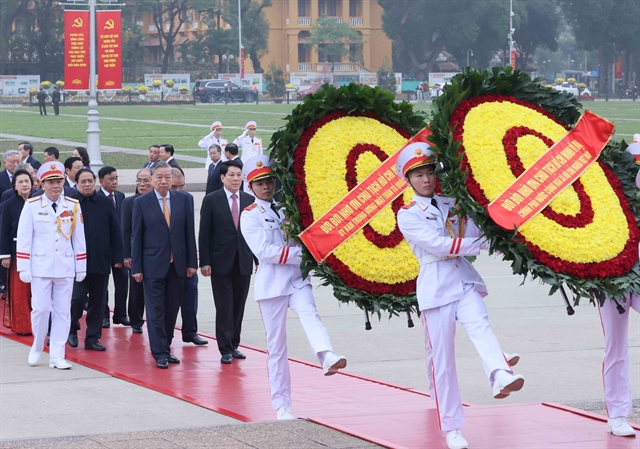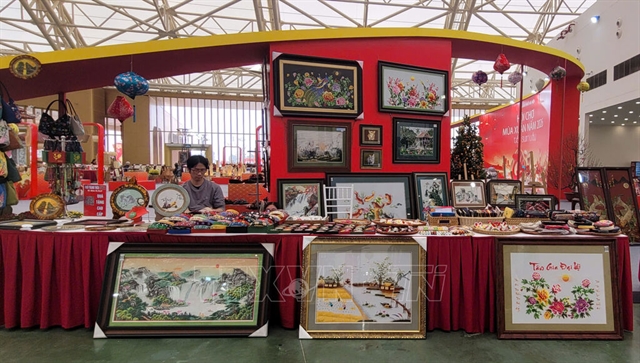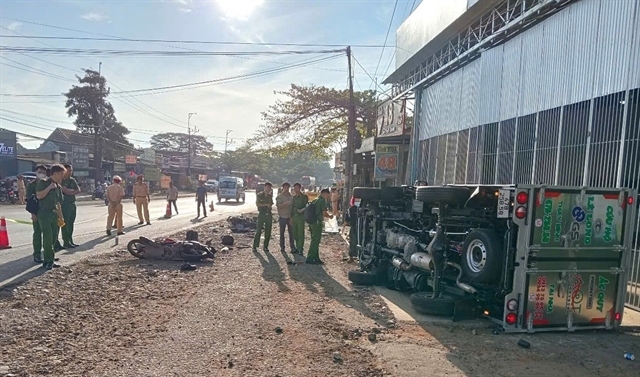 Society
Society
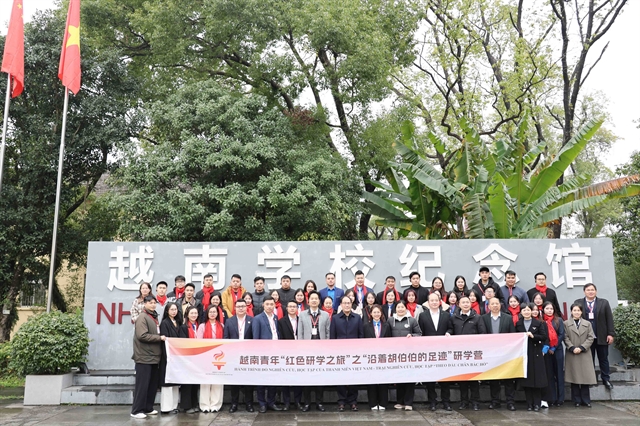
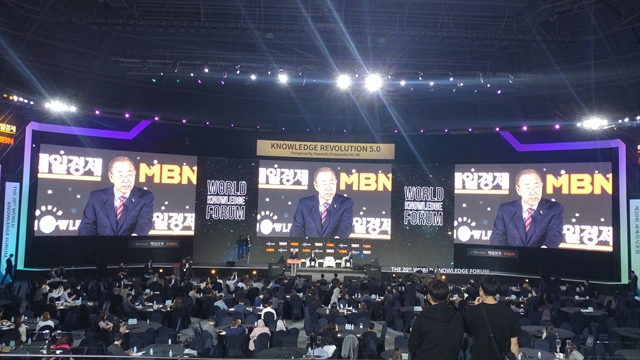
|
| Ban Ki-moon, former Secretary General of the United Nations, delivers a speech at a session of the 20th World Knowledge Forum held on Thursday in Seoul. — VNS Photo Ngọc Bích |
SEOUL Ban Ki-moon, former Secretary General of the United Nations, on Thursday called on more collaboration between corporations and the international community, as well as more use of advanced technologies to ensure no one is left behind.
When addressing a session of the 20th World Knowledge Forum on 'Building a better future with technology', in Seoul, South Korea Ban said: “We must understand that inclusiveness remains an essential pillar for continued sustainable development goals (SDGs)."
“We cannot move forward without ensuring no one is left behind. This is an important philosophical motto of SDGs,” he said.
“Achieving SDGs is depending on transforming various sectors of society. This includes transitioning to green energy, building smart cities, expanding sustainable agriculture and protection of biodiversity, and many others.
“Innovation through locomotives of technology and science will be key elements to actualising these transformation and ensure the ultimate success of SDGs.”
However, Ban said that innovation in technology should not be limited to the United Nation's 17 SDGs.
Governments should prioritise public investments in research and development to nurture collaboration between key stakeholders and synergise innovation to achieve SDGs.
President and Chief Strategy Officer of Samsung Electronics Young Sohn said the world has changed, so the approach to innovation is also changed.
“As we continue create revolutionary changes, we must embrace the concept 'Tech for good'," he said.
He highlighted the challenges the next generations might meet if they can't access quality education and are not prepared to embrace technology.
He stressed that global issues such as education, food and energy could “either unify us or divide us”, adding that it depends on how communities deal with them.
He recalled that five years ago, he launched a technology challenge programme for his employees to share knowledge to be able to improve their performance. Now, the programme has become a global start-up competition to focus on ‘tech for good’.
“That is tremendous opportunities that entrepreneurs, corporations, start-ups and governments to work together to have global impacts.”
Chairman of Maekyung Media Group Chang Dae-whan said there are many across the globe seeking collaboration between corporations and countries.
He gave an example that smart cities collaboration is a new turning point in sustainable urban transformation.
“Companies, cities and countries can work together based on key technology of the Fourth Industrial Revolution to make life more convenient and safe,” he said.
He quoted Jack Ma, co-founder and former executive chair of Alibaba Group, as saying: “In a rapid change of the technological environment, we cannot survive by focusing on profit goals… We need to increase social potentials.”
Chang stressed the leading roles of enterprises in spreading philanthropy as core knowledge management value, preserving environment and energy.
He said the global economy is increasingly influenced by non economic factors such as trade wars, geopolitical conflicts and climate change. However, he expressed his confidence these non-economic uncertainties will be greatly resolved by pursuing sustainable development goals.
Ending the session, Chang signed an agreement with Samsung's Young.
Under the agreement, the Meukyung Media Group will become a founding sponsor for the Samsung Electronics’ Extreme Tech Challenge which is a competition to encourage companies to develop and offer products and services to advance the 17 UN SDGs. — VNS


